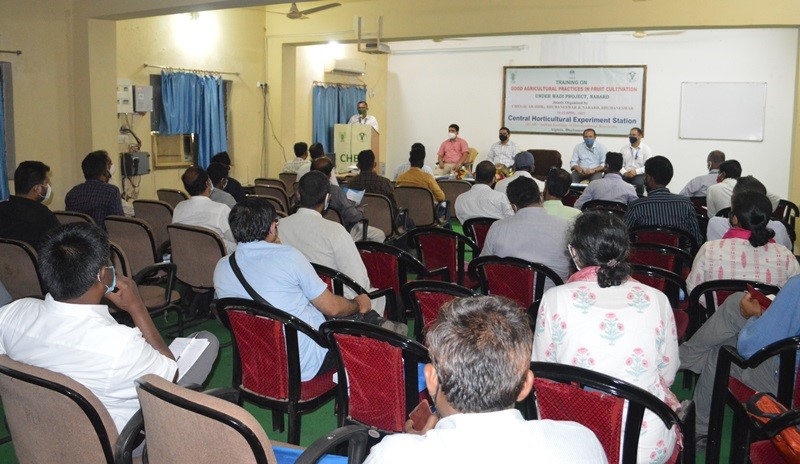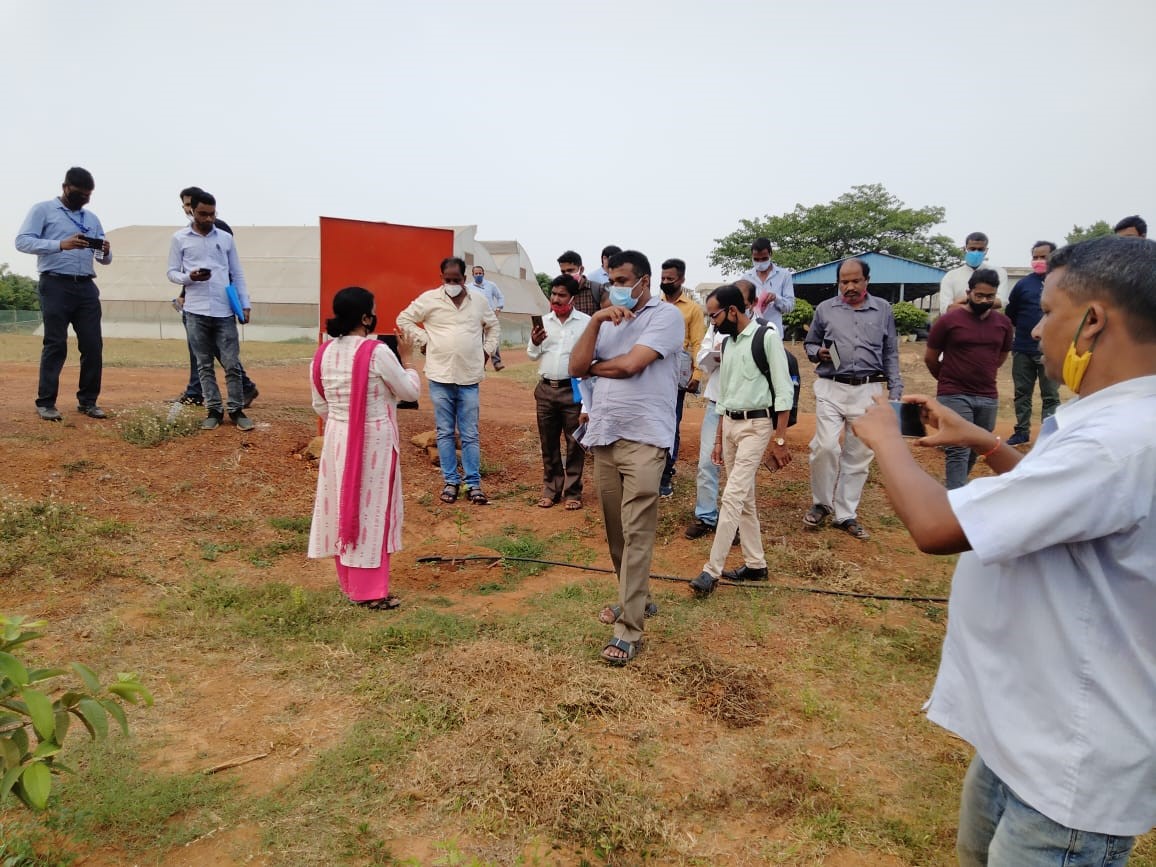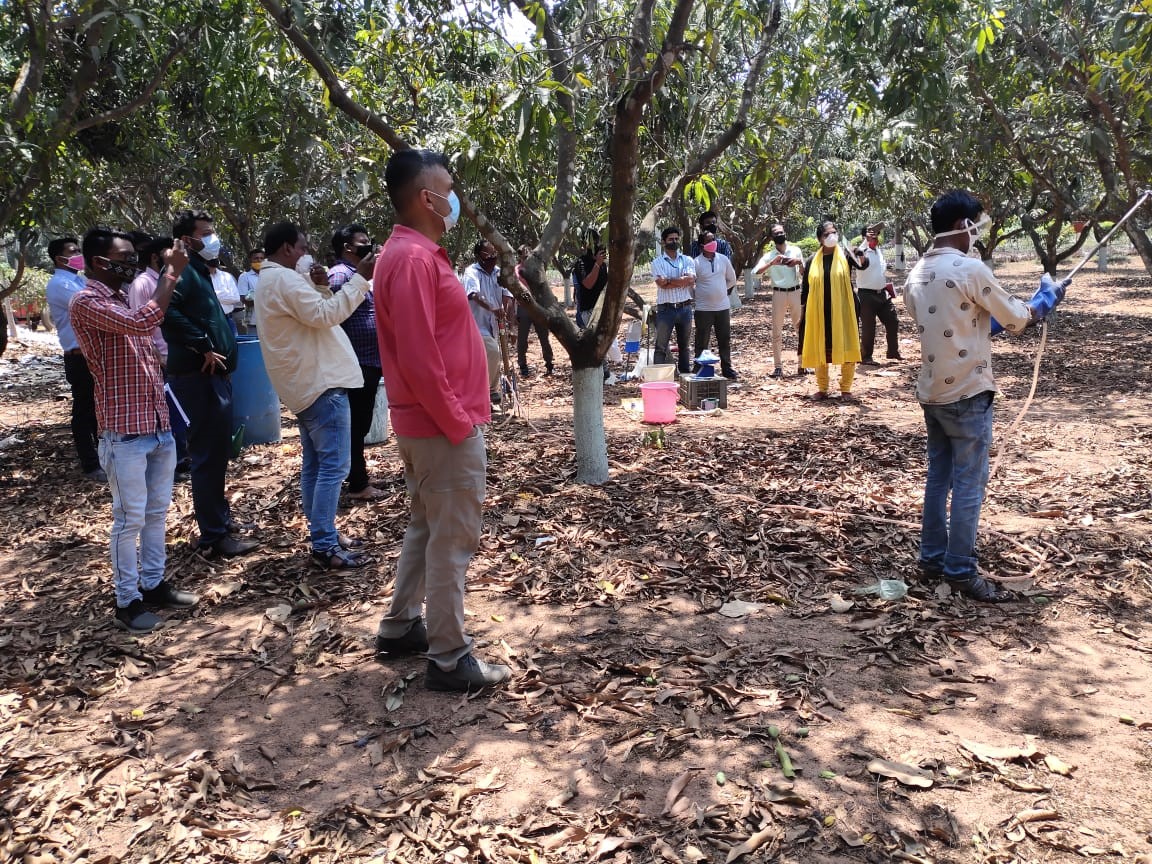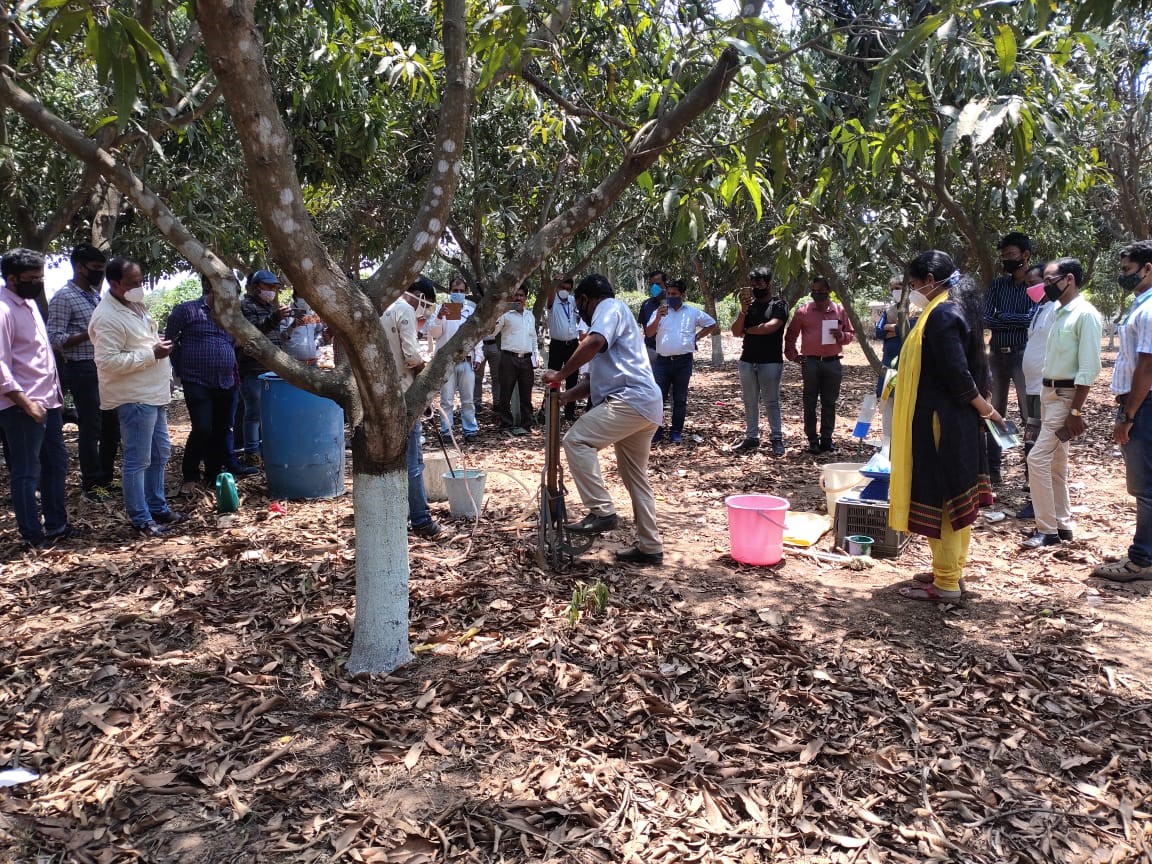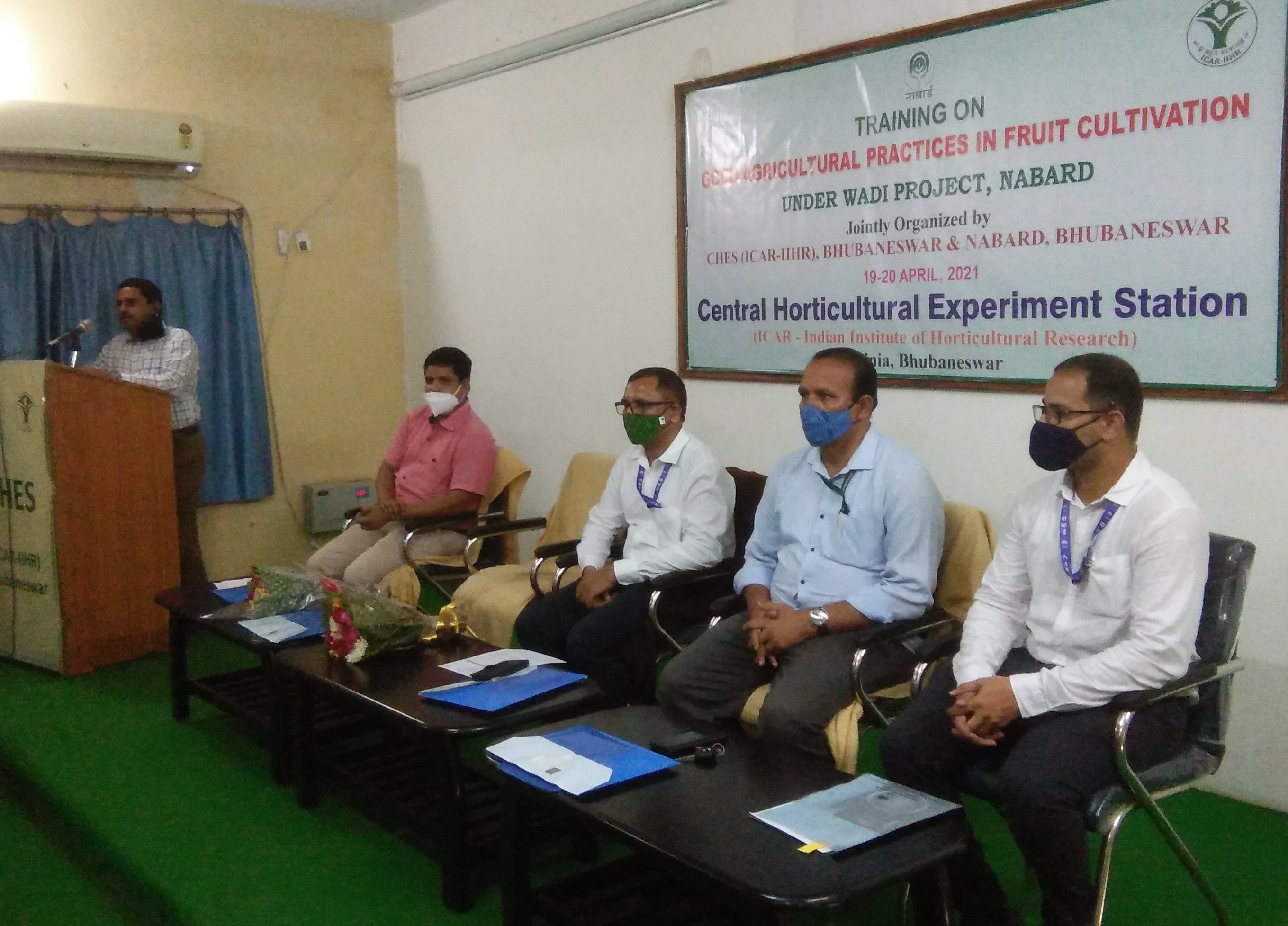
Two days training program on “Good Agricultural Practices in Fruit Cultivation” was jointly organized by CHES (ICAR-IIHR), Bhubaneswar and NABARD from 19 – 20 April, 2021. The aim of the program was to impart comprehensive knowledge on orchard establishment and scientific orchard management to the extension functionaries associated with the WADI Project of NABARD. The program was attended by 30 participants including NABARD officials. At the outset, Dr. G. C. Acharya, Head I/c, welcomed the NABARD officers and participants and highlighted the research and extension activities of the station for the benefit of farming community. The adoption of good agricultural practices is essentially required for increasing productivity of fruit crops, he added. He also appreciated the effort of NABARD in dissemination of good agricultural practices in fruit crops for extension functionaries. Sh. R. C. Sahoo, DGM, NABARD emphasized the need of feasible agronomic practices in sustaining fruit yield. He appreciated CHES (ICAR-IIHR), Bhubaneswar for organizing training program in collaboration with NABARD. He also expressed that the program will not only update extension functionaries with scientific technologies but also facilitate their efficient dissemination. Dr. Kundan Kishore highlighted the importance of scientific fruit production technology in enhancing production and quality. Dr. Manas Sahoo elaborated the effort of CHES in technology dissemination through demonstrations and training programs.
In the training program both theory and practical classes were arranged. Various aspects of fruit orchard management such as planning and establishment, good agricultural practices, water management, varietal suitability, intercropping, organic cultivation and insect pest and disease management were covered by external expert and CHES, scientists. Hands on training on the orchard establishment, nutrient management, water management and pest and disease management were provided by the scientists and technical staff of CHES. Interaction and feedback session was also arranged wherein the queries of participants were addressed. Participants expressed satisfaction over the training program and stated that technological interventions would be disseminated among the farming community. Dr. G. C. Acharya acted as a Course Director, whereas, the program was coordinate by Dr. Kundan Kishore and Dr. Manas Sahoo with the help of Sh. B C Patra. The program was ended with the vote of thanks proposed by Mr. Sarat h, NABARD.
